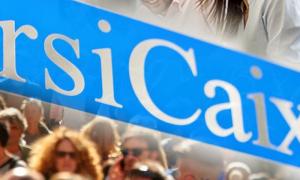Grifols invests in the project led by AlbaJuna Therapeutics, a spin-off from IrsiCaixa, to fund the development of therapeutic antibodies against HIV

AlbaJuna Therapeutics, a spin-off from the IrsiCaixa AIDS Research Institute, is developing a new treatment strategy based on monoclonal antibodies with great potential to neutralize HIV and activate the “natural killer” cells responsible for destroying cells infected by the virus. The three candidate molecules available have demonstrated in vitro results that are 100 times more powerful than those obtained to date by any other molecule with similar characteristics.
- Grifols will initially invest 3.75 million euros, although its total investment in the project will increase as each development stage is completed.
- The candidate molecules have been developed at the laboratories of IrsiCaixa, the AIDS Research Institute promoted jointly by the social initiative of “la Caixa” Foundation and the Department of Health of the Government of Catalonia. The scientific activity will be conducted at IrsiCaixa in partnership with a number of teams from the Can Ruti Campus.
- Bonaventura Clotet, director of IrsiCaixa, President of Fundació Lluita contra la Sida and Head of the Infectious Diseases Service of the Hospital Germans Trias i Pujol, is one of the leaders of the project and forms part of the scientific management team at AlbaJuna Therapeutics.
Grifols (MCE:GRF, MCE:GRF.P y NASDAQ:GRFS), the world’s third-largest plasma product manufacturer and a pioneer in the research and development of therapeutic alternatives designed to contribute to both scientific and social development, is investing in AlbaJuna Therapeutics to fund the development and manufacture of therapeutic antibodies against HIV. AlbaJuna Therapeutics is a spin-off from the IrsiCaixa AIDS Research Institute, promoted jointly by “la Caixa” Foundation and the Department of Health of the Government of Catalonia, established to promote the pre-clinical and clinical development of monoclonal antibodies that neutralize the action of HIV in the body whilst they increase the activity of the natural killer cellsthat have the task of destroying infected cells.
Grifols will initially invest 3.75 million euros, although its total investment in the project could increase as each development stage is completed.
The in vitro results of the candidate molecules have demonstrated a neutralizing power 100 times greater than that of any other molecule developed to date, and the participation of Grifols in this research company will accelerate its development.
The scientific activity of AlbaJuna Therapeutics will also be conducted at IrsiCaixa, in partnership with a number of teams from the Can Ruti Campus and various external services. IrsiCaixa’s in-depth knowledge of basic and clinical research in the field of HIV will be complemented by the experience and knowledge of Grifols. The Board of Directors of AlbaJuna Therapeutics will include representatives of both IrsiCaixa and Grifols. Scientific Management will be the responsibility of the Director of IrsiCaixa, Bonaventura Clotet, and Julià Blanco and Jorge Carrillo. Grifols was advised on the transaction by Osborne Clarke and AlbaJuna Therapeutics by Rousaud Costas Duran.
Innovative strategy to treat HIV
AlbaJuna Therapeutics aims to develop an innovative strategy to treat HIV by manufacturing multi-functional antibodies. When they act against a virus, antibodies bond to a region of the external protein of the virus that participates in the infection process, thereby neutralizing it. In general, each antibody only recognizes a single region. What is unique about Albamab, Junamab and Martamab, the three monoclonal antibodies that AlbaJuna Therapeutics will be focusing on, is their capacity to interact with several regions of the HIV virus, thus increasing their neutralizing capacity. At the same time, they have been designed to increase the activity of the natural killer cells responsible for destroying any cells infected by HIV. “The result is an antibody that not only has a powerful impact in terms of neutralizing the virus, but also in the destruction of infected cells, something that would make it possible to destroy the reservoir of the virus in the organism,” explains Jorge Carrillo, researcher at IrsiCaixa.
To date, the antibodies have been trialed with very positive results in the laboratory, using primary HIV isolates from infected individuals, some of which were known for its resistance to classic antibodies. According to Julià Blanco, IGTP researcher at IrsiCaixa and principal investigator of the group that developed the antibodies: “This is a much more realistic situation, which is much closer to what might really occur inside the organism, and the results are therefore much more reliable.”
The researchers explain that, if the expectations riding on the clinical trials are met, the new molecule could be a tool in the treatment of those already infected with HIV. “It has huge potential and could also deliver synergies by combining it with other eradication mechanisms that we are investigating at IrsiCaixa, such as therapeutic vaccines or latency reactivation agents,” saysBonaventura Clotet, director of IrsiCaixa, President of Fundació Lluita contra la Sida and Head of the Infectious Diseases Service of the Hospital Germans Trias i Pujol.